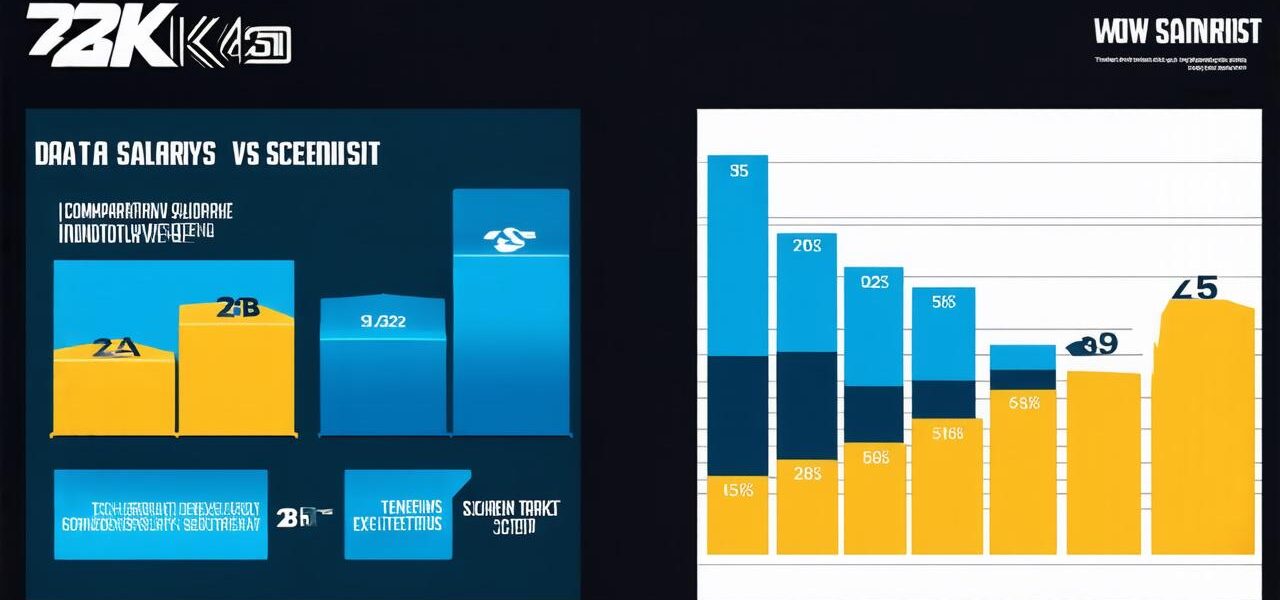
Comparing Salaries: Blockchain Developer vs. Data Scientist
When it comes to choosing a career in technology, there are many paths to consider. Two of the most popular and in-demand careers right now are blockchain developers and data scientists. But which one is right for you? In this article, we will compare the salaries of these two professions and examine the skills and responsibilities required to excel in each field.
According to Glassdoor, as of October 2021, the average base salary for a blockchain developer is $136,489 per year, while a data scientist can expect to earn an average base salary of $115,717 per year. However, these numbers can vary depending on factors such as location, years of experience, and specific skill sets.
Blockchain Developer vs. Data Scientist: Salary Comparison
When it comes to salary potential, blockchain developers have the upper hand. Due to the high demand for blockchain technology and its many applications, companies are willing to pay top dollar for skilled blockchain developers. In fact, some of the highest-paying jobs in the world right now are in blockchain development.
Data scientists, on the other hand, also have a high earning potential but not as high as blockchain developers. However, data science is still a highly sought-after skill, and companies are willing to pay for talent in this field as well. In addition, data scientists can expect to work on exciting projects and contribute to the development of new technologies.
Skills Required for Blockchain Developers and Data Scientists
Blockchain Developer Skills
- Proficiency in programming languages such as Solidity, Vyper, and JavaScript
- Knowledge of blockchain platforms such as Ethereum, Hyperledger, and Corda
- Understanding of cryptography and consensus mechanisms
- Experience with smart contracts and decentralized applications (dApps)
- Familiarity with blockchain development tools such as Truffle and Remix
- Strong problem-solving skills
Data Scientist Skills
- Proficiency in programming languages such as Python, R, and SQL
- Knowledge of data science libraries and frameworks such as NumPy, Pandas, TensorFlow, and Scikit-learn
- Understanding of statistical analysis and machine learning techniques
- Experience with data visualization tools such as Matplotlib, Seaborn, and Tableau
- Familiarity with cloud computing platforms such as AWS, Azure, and GCP
- Strong communication skills
Responsibilities of Blockchain Developers and Data Scientists
Blockchain Developer Responsibilities
- Designing and implementing blockchain-based solutions for various industries such as finance, healthcare, and supply chain management
- Building smart contracts, decentralized applications (dApps), and other blockchain-based solutions
- Ensuring the security and scalability of blockchain systems
- Collaborating with cross-functional teams to develop and maintain blockchain infrastructure
- Staying up-to-date with the latest developments in blockchain technology and best practices
Data Scientist Responsibilities
- Collecting, cleaning, and analyzing large datasets to extract insights and trends
- Designing and implementing predictive models and machine learning algorithms
- Developing data visualizations and dashboards to communicate findings to stakeholders
- Building and maintaining data pipelines and infrastructure
- Collaborating with cross-functional teams to develop and maintain data-driven solutions
- Staying up-to-date with the latest developments in data science and best practices

Real-Life Examples of Blockchain Developers and Data Scientists
Blockchain Developer Example
John is a blockchain developer who works for a financial services company. His day-to-day responsibilities include designing and implementing blockchain-based solutions for the banking industry, building smart contracts and decentralized applications (dApps), and ensuring the security and scalability of these systems. John must have a deep understanding of cryptography and consensus mechanisms, as well as experience with blockchain development tools such as Truffle and Remix.
Data Scientist Example
Mary is a data scientist who works for a healthcare company. Her day-to-day responsibilities include collecting and analyzing large datasets related to patient health outcomes, designing and implementing predictive models and machine learning algorithms, and developing data visualizations and dashboards to communicate findings to stakeholders. Mary must have proficiency in programming languages such as Python and R, as well as knowledge of data science libraries and frameworks such as NumPy, Pandas, TensorFlow, and Scikit-learn.
Summary
When it comes to choosing a career in technology, both blockchain developers and data scientists have unique skills and responsibilities that are required for their respective roles. While blockchain developers tend to have higher salaries due to the high demand for this field, data scientists also have a high earning potential and contribute to the development of exciting new technologies. Ultimately, the best choice will depend on your personal interests, strengths, and career goals.



